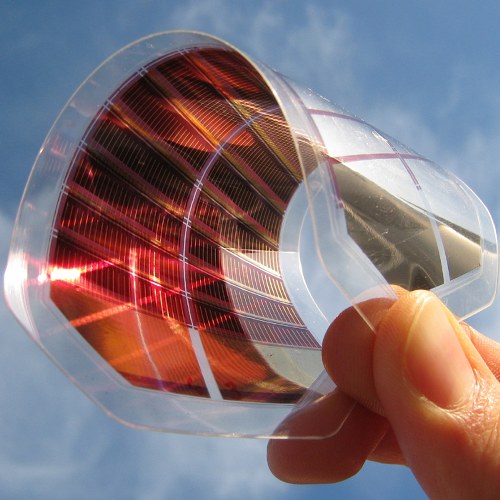 Organic & Perovksites photovoltaic devices (OPV and PPV respectively) as other organic electronics (OLEDs, sensors, etc.) have the promise to provide lightweight, flexible alternatives to traditional, rigid semiconductor technologies and other inorganic thin film PV technologies. Nowaday, OPV industry is mature for mass production (3 companies in Europe will produce in 2020) and targets new markets like Building Integrated PV (BIPV), Urban Furniture or energy harvesting in the field of the IoT (Internet of Things). At the other hand, PSC technology, based on similar architectures/processes than OPV, reached new power conversion records, up to 23%, and is one on the most discussed topic in the PV world.
Organic & Perovksites photovoltaic devices (OPV and PPV respectively) as other organic electronics (OLEDs, sensors, etc.) have the promise to provide lightweight, flexible alternatives to traditional, rigid semiconductor technologies and other inorganic thin film PV technologies. Nowaday, OPV industry is mature for mass production (3 companies in Europe will produce in 2020) and targets new markets like Building Integrated PV (BIPV), Urban Furniture or energy harvesting in the field of the IoT (Internet of Things). At the other hand, PSC technology, based on similar architectures/processes than OPV, reached new power conversion records, up to 23%, and is one on the most discussed topic in the PV world.
First, the principle of Organic and Perovskites technologies will be presented. The course provides an insight into the theory behind these technologies and describes the three main research areas within the field i.e. materials, stability and processing.
Beyond the theoretical aspects, the goal of the course about OPV/PPV is to give a clear pictures of the last industrial developments and market opportunities. The future of these last PV generations will be discussed with students on the basis of the key parameters (technical, cost, market, regulation, politics…) and compared with other PV and renewable technologies.
In addition of the courses, 2 practical exercises are planned:
1. Analysis of scientific papers describing specific topics related to OPV or PPV. These “Highlight” papers will selected by groups of students and orally presented.
2. Practical work with OPV devices (measurements in different conditions, realization of systems using OPV energy harvesting).


